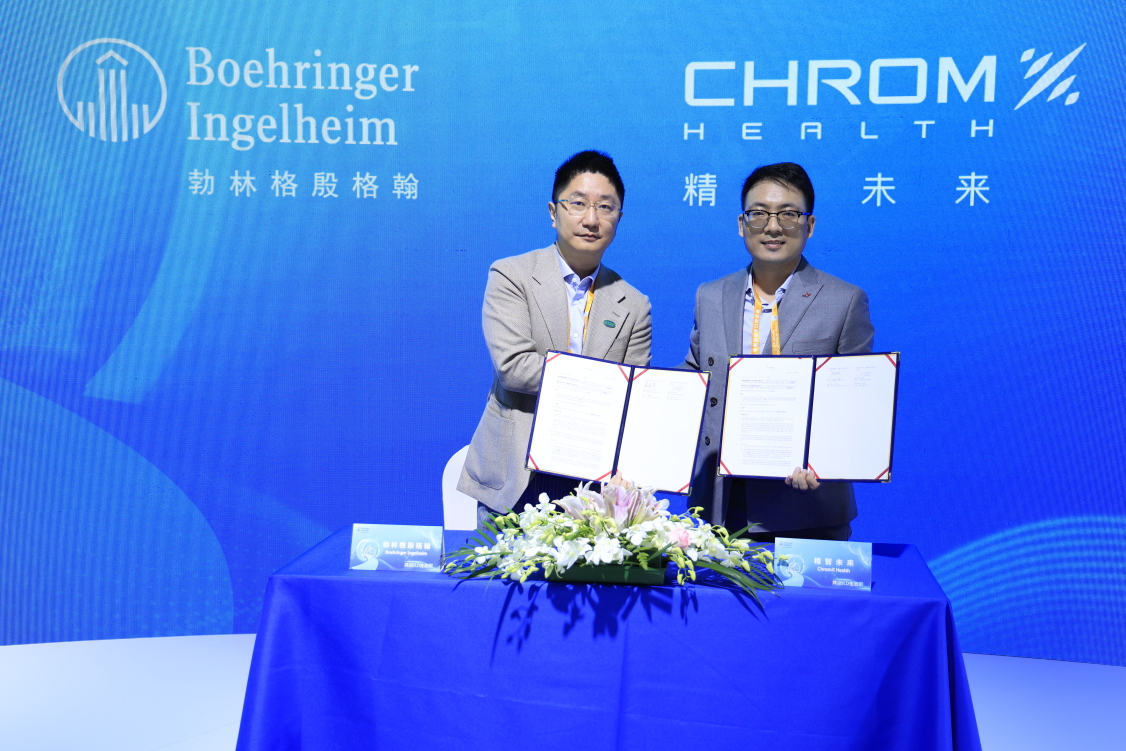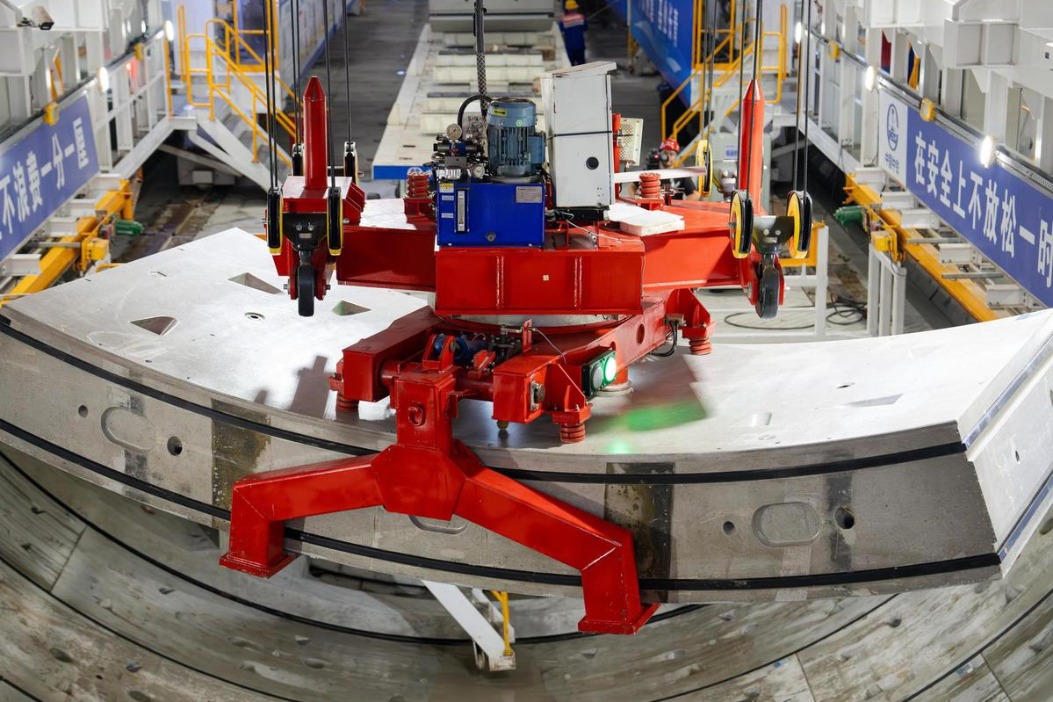German biopharmaceutical firm partners with Chinese high-tech company to research lung disease


German biopharmaceutical company Boehringer Ingelheim's China arm has inked a strategic cooperation agreement with Chinese high-tech company ChromX Health, to jointly push forward research on interstitial lung diseases and search for innovative early diagnosis and intervention solutions.
Interstitial lung diseases, or ILD, are a large group of disorders that can cause progressive scarring of lung tissue if not treated timely and effectively, resulting in difficulty to breathe and even death.
However, the causing factors of the diseases are very complicated, while the early symptoms of ILD are not easy to detect, which together makes it very difficult to make a diagnosis.
Boehringer Ingelheim said it would cooperate with leading medical device companies, high-tech startups, and patient organizations, to develop a patient-centered ecosystem that provides full-circle disease management for ILD patients.
The strategic cooperation between Boehringer Ingelheim China and ChromX Health came after the German company initiated actions on building the ILD ecosystem and signed a cooperation agreement with Omron Healthcare China in May.
The signing ceremony of the agreement was held during the recently concluded sixth China International Import Expo in Shanghai.
"The vision of the ILD ecosystem is to create one-stop solutions covering disease education, early screening, diagnosis, precision treatment, and management of the diseases," said Chen Xingrong, general manager of human pharma of Boehringer Ingelheim Great China.
"As a foreign company with strong presence in China, we hope more local innovation companies with international competitiveness will join us into contributinge to the high-quality development of the ecosystem and bring about long-term benefits to the patients," Chen added.
Wang Junqi, founder and CEO of ChromX Health said that the cooperation will expand the company's product research and development scope. The company aims to combine advanced technologies including artificial intelligence to help detect ILD patients and high-risk groups, so that standard treatment and disease management following early detection will become more feasible.
Currently, the company is accelerating the industrial manufacturing and commercialization of its microminiature volatile organic compounds-based breath analysis devices, which can analyze biomarkers in breathomics for disease screening, diagnosis, and precision medicine.
Wang said the devices could be used in both hospitals and residential scenarios.
During the CIIE, Boehringer Ingelheim also exhibited a new drug candidate at the Phase-3 clinical trial for treating idiopathic pulmonary fibrosis, a rare and chronic lung disease.




































